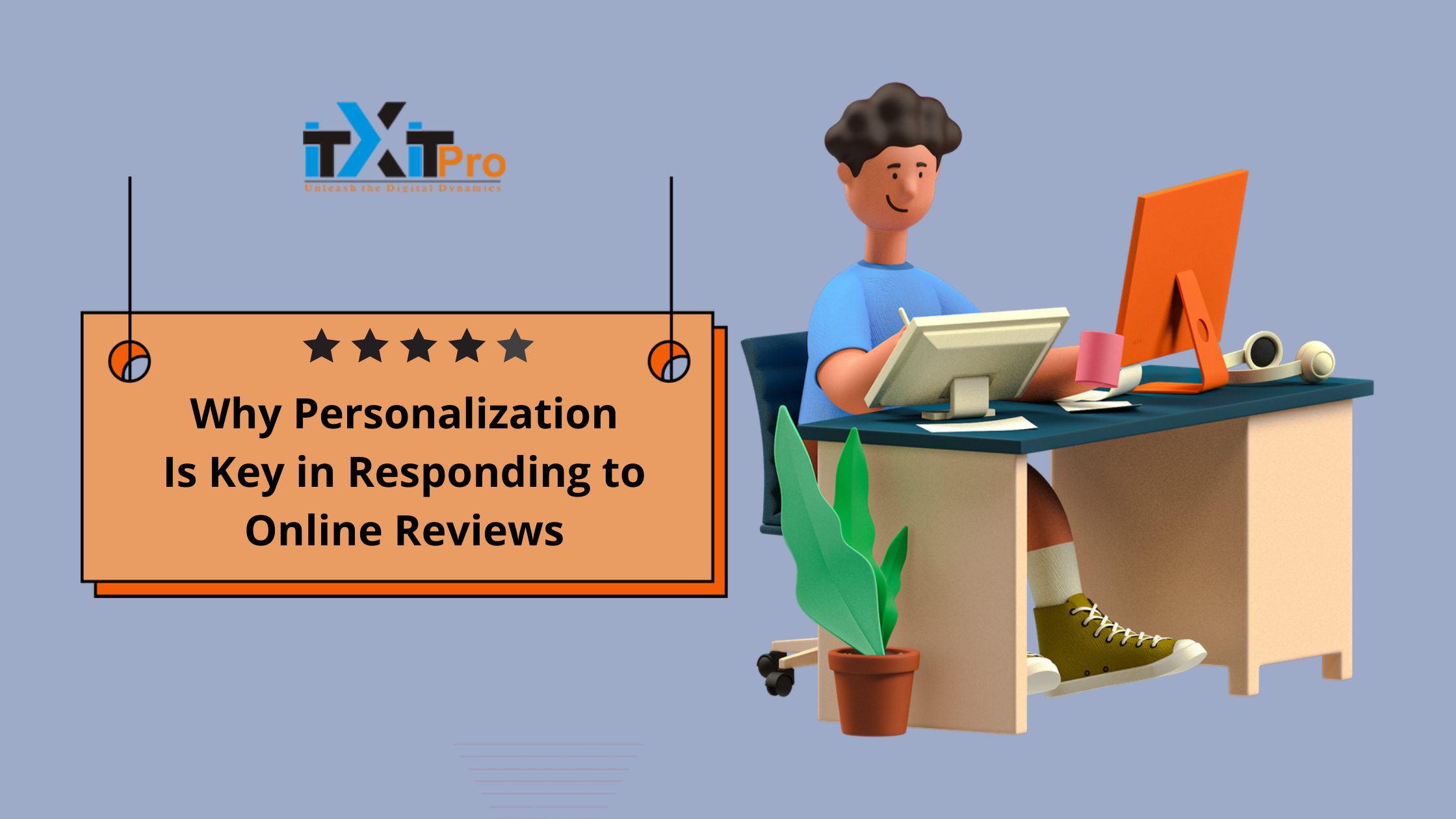Introduction

In the digital age, online reviews significantly impact a brand’s reputation, customer trust, and conversion rates. Whether positive or negative, reviews offer businesses a chance to engage with customers, build relationships, and strengthen loyalty. However, generic, copy-pasted responses can make customers feel undervalued. Personalizing review responses enhances satisfaction and credibility. This guide explores why personalized responses matter and how to implement them effectively.
Why Personalization Matters
1. Strengthens Customer Relationships
Customers appreciate when brands acknowledge their specific experiences. A personalized response shows that a business values feedback and fosters emotional connections, enhancing loyalty and encouraging repeat business.
2. Boosts Trust & Credibility
A well-crafted, personalized response demonstrates authenticity and care. When potential customers see that a brand takes time to address individual concerns and appreciate positive feedback, they are more likely to trust the business, leading to higher conversion rates and stronger retention.
3. Encourages Engagement & Advocacy
Satisfied customers who feel heard are more likely to recommend the brand. Meaningful engagement can also turn neutral or dissatisfied customers into loyal advocates.
4. Helps Manage Negative Reviews Effectively
Generic responses to negative reviews can make matters worse. Personalized replies that acknowledge concerns and offer solutions help mitigate damage and show commitment to customer satisfaction.
5. Enhances SEO & Online Visibility
Personalised responses contribute to fresh, unique content on review platforms, improving local SEO rankings. Google and other search engines prioritize businesses that actively engage with customers, increasing online visibility.
6. Drives Sales & Conversions
Consumers often read online reviews before making purchasing decisions. Thoughtful, personalized responses to both positive and negative reviews showcase excellent customer service, influencing potential buyers and boosting conversions.
How to Craft Personalized Review Responses
1. Address the Customer by Name
Whenever possible, use the reviewer’s name to create a warm and engaging response. Instead of a generic “Thank you for your feedback,” say, “Thank you, John, for your thoughtful review!”
2. Reference Specific Details
Mentioning aspects of the customer’s experience shows attentiveness. For example, if a reviewer praises a service or product, acknowledge it: “We’re so glad you enjoyed our express delivery, Sarah! We strive to make shopping as convenient as possible.”
3. Express Genuine Gratitude
Customers take time to leave reviews, so sincerely appreciating their effort fosters goodwill.
4. Offer Solutions for Negative Feedback
Avoid defensive responses. Instead, acknowledge the issue, apologise sincerely, and offer a resolution. For example:
“Hi Mark, we’re sorry to hear about your experience. We strive for excellent service, and it seems we missed the mark. We’d love to discuss this further and make it right. Please reach out to our support team at support@example.com. “
Addressing concerns professionally helps with online reputation management and crisis communication strategies.
5. Maintain a Friendly, Professional Tone
A conversational yet professional tone makes responses feel authentic. Avoid robotic or overly formal language while staying brand-appropriate.
6. Encourage Further Engagement
Invite customers to return, provide additional feedback, or reach out for support to keep the conversation open and enhance satisfaction.
7. Use AI Tools Thoughtfully
AI-powered tools can help scale personalisation efforts by analysing sentiment, detecting key topics in reviews, and generating relevant responses. However, AI-generated replies should always be reviewed to ensure authenticity.
Case Studies: The Impact of Personalized Review Responses
Case Study 1: A Small Business Boosts Customer Loyalty
A local bakery noticed that many customers left positive reviews but received only generic responses. After implementing personalised review responses, engagement increased by 35%, with repeat customers mentioning how much they appreciated the thoughtful replies. This simple change led to higher retention and customer satisfaction.
Case Study 2: A Hotel Chain Improves Reputation Management
A mid-sized hotel chain struggled with negative reviews, leading to decreased bookings. They started responding personally to each review, addressing concerns and offering direct resolutions. Within six months, their average rating improved from 3.5 to 4.3 stars, and booking rates increased by 20%. This strategy became a key part of their digital marketing and brand management plan.
Case Study 3: An E-Commerce Brand Gains Competitive Edge
A growing e-commerce company found that customers who received a personalised response were twice as likely to make another purchase. This strategy also improved brand advocacy, with customers sharing their experiences on social media, further driving traffic and conversions.
The Psychology Behind Personalized Responses
Studies show that people appreciate acknowledgement and validation. When businesses respond personally, it triggers positive emotional responses, strengthening brand affinity. This psychological principle, known as the reciprocity effect, means that customers are more likely to return the favor with loyalty and recommendations.
Examples of Personalized Review Responses
Positive Review Example
Customer Review: “I love the quality of the products and the fast shipping! Will definitely order again.”
Personalised Response: “Thank you so much, Emily! We’re thrilled you loved the quality and fast shipping. Your support means the world to us, and we can’t wait to serve you again.”
Negative Review Example
Customer Review: “I had a poor experience with customer service. My issue wasn’t resolved properly.”
Personalized Response: “Hi Alex, we’re truly sorry that our service didn’t meet your expectations. We take customer satisfaction seriously and would love the chance to make things right. Please contact us at support@example.com so we can resolve this issue for you.”
Key Takeaways
- Respond promptly. Show customers their feedback is valued.
- Be professional and empathetic. Acknowledge concerns without being defensive.
- Customise each response. Avoid generic replies.
- Encourage further communication. Invite customers to reach out when needed.
- Use reviews as learning opportunities. Identify trends to improve products and services.
Conclusion
Personalised review responses are a powerful tool for strengthening customer relationships, building trust, and enhancing brand reputation. Thoughtful, tailored replies turn customer interactions into meaningful engagements that drive long-term success. Whether addressing praise or criticism, a well-personalised response makes a lasting impression.
By integrating AI-driven insights, demonstrating genuine care, and ensuring consistency in personalised responses, businesses can improve customer experiences and foster loyalty that translates into growth.
Implementing personalised review responses is more than just good customer service—it’s a strategic move that can enhance brand perception, improve retention, and ultimately drive revenue. Start today and experience the difference that thoughtful engagement can make! The Power of Personalized Review Responses















